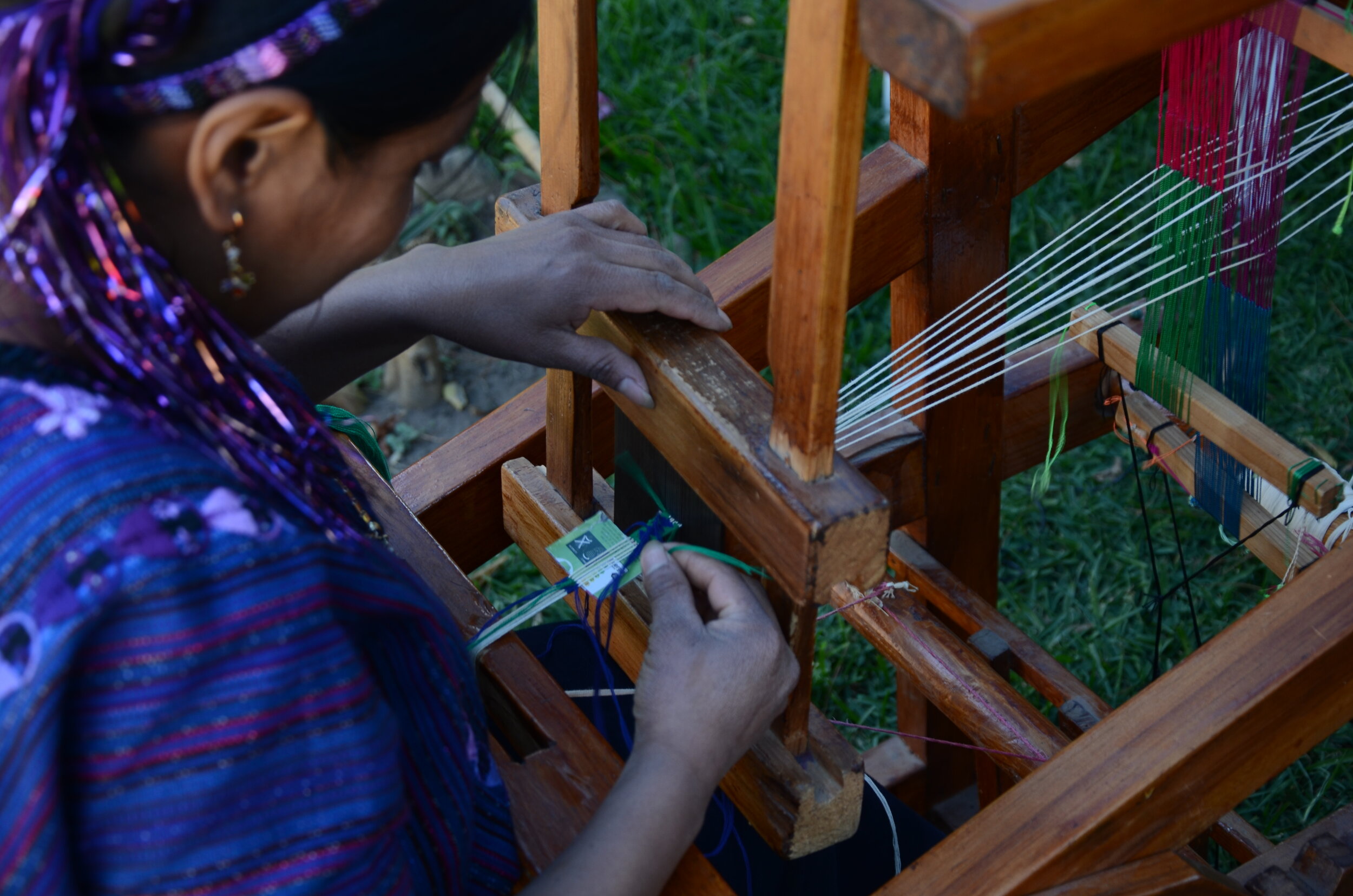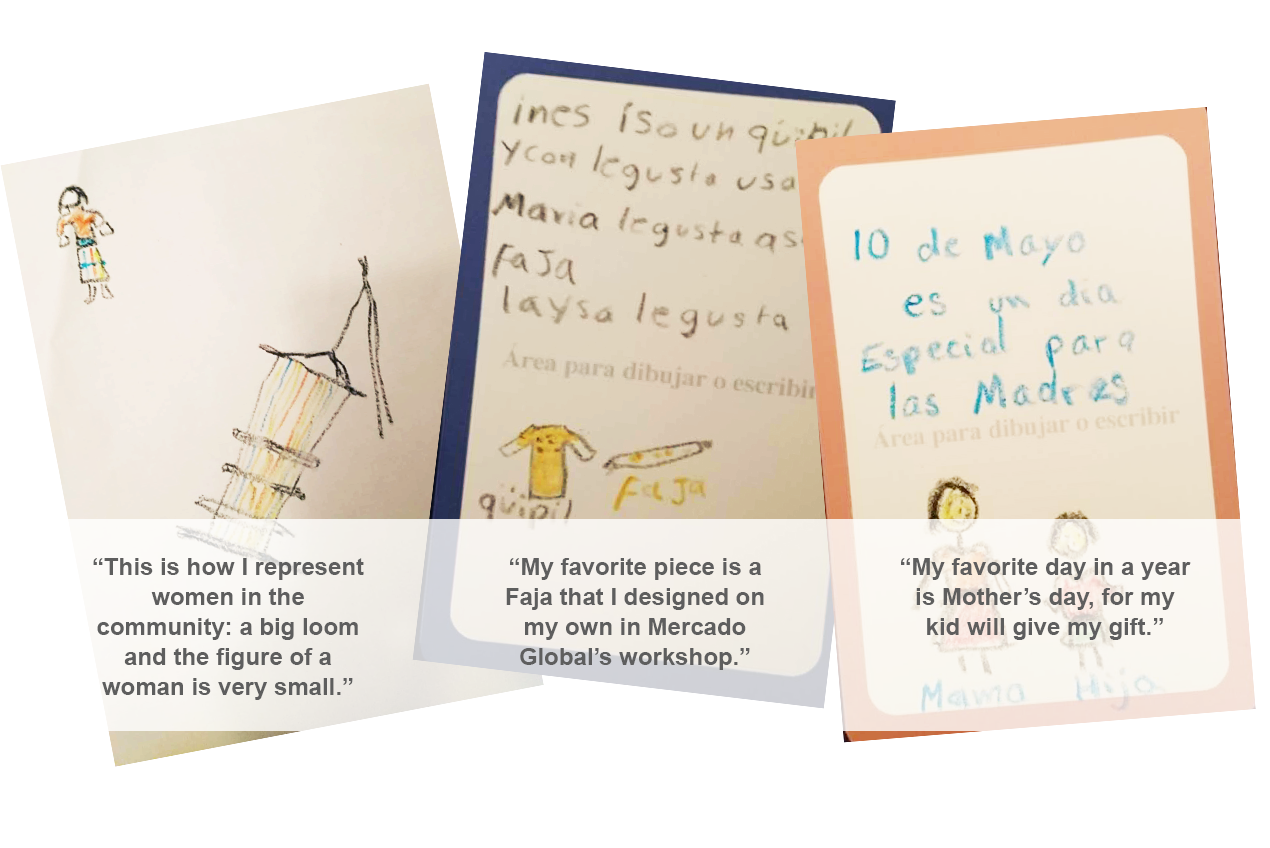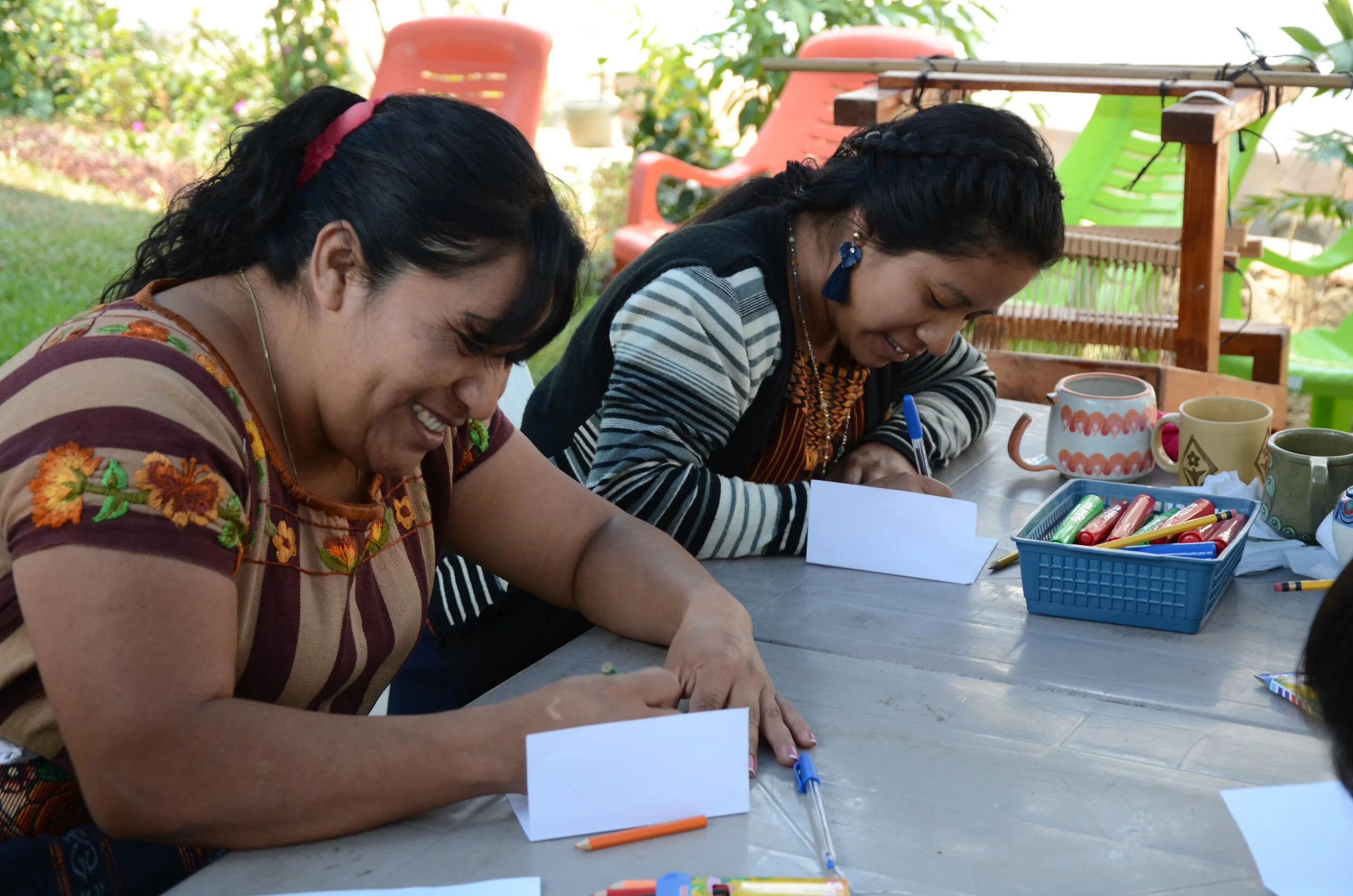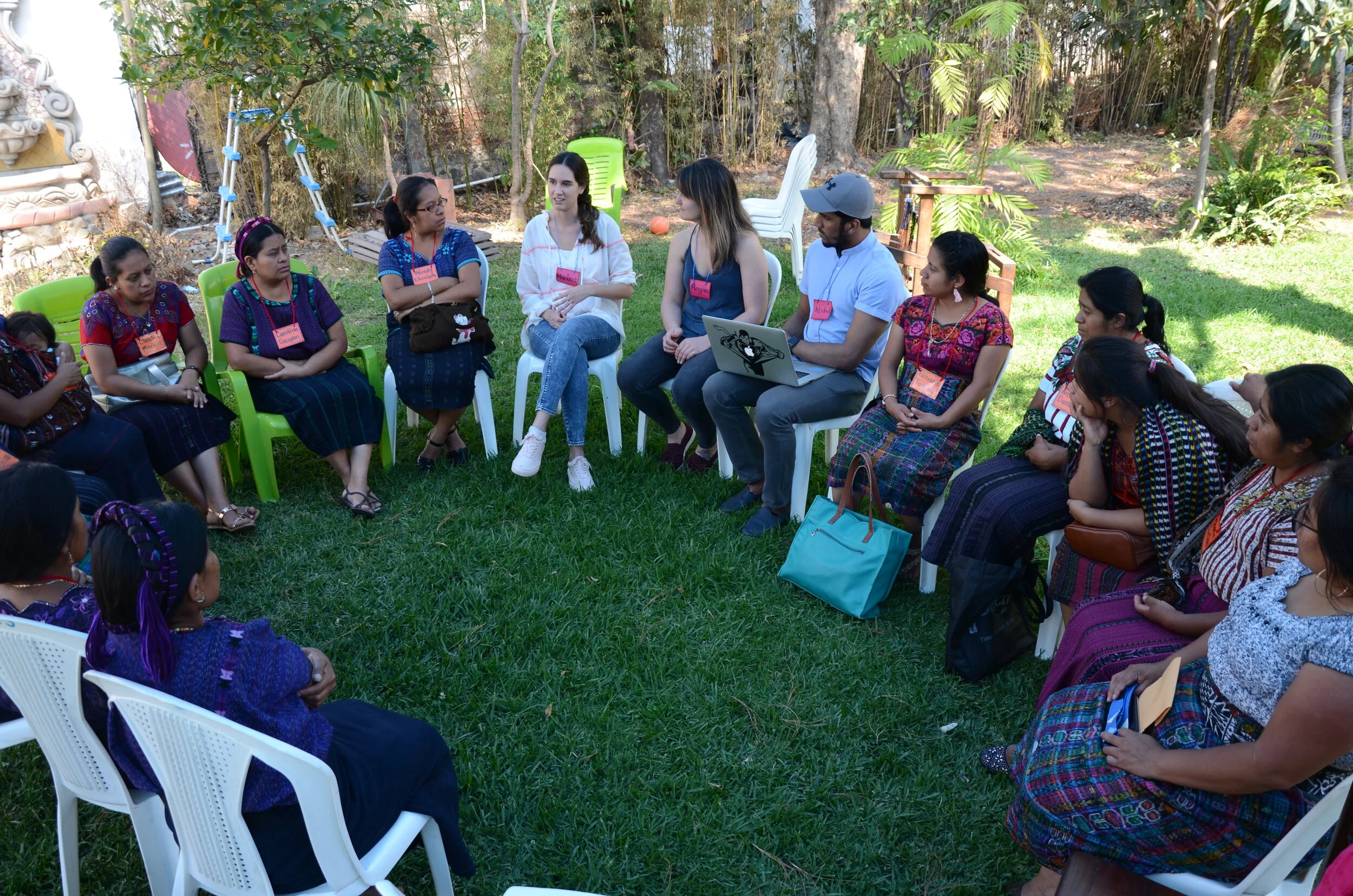Overview
We Weave, We Design is a project composed of two stages. During the first stage, through participatory action research methods, we explored ways of including artisans’ voices in conversations on poverty alleviation, cultural preservation, and artisan empowerment. During the second stage, we proposed a four-day workshop as a participatory and equitable model of collaboration that brings artisan voices in the design process and challenges oppressive systems.
Introduction+Context
The Craft sector is the second-largest employer in the developing world, and yet the majority of artisans are living in poverty. ‘‘We Weave, We Design’’ started as a Parsons’ course project that aimed to explore the question ‘‘How might we better support indigenous artisans and their families past the current generation of makers?’’ and became a curriculum development project for an empowerment program at Mercado Global, a non-profit that empowers rural Latin American, in collaboration with DEED Lab, a research lab at Parsons School of Design.
Research
We started exploring the ecosystem of the craft sector. We collected data from different sources, reviewed bibliography, and considered different perspectives and practices. After analyzing and synthesizing the information, we discovered the following: despite there were a lot of conversations about different dilemmas in the craft sector, and that these conversations were about the artisans, their voices were not included.
Participatory Research- Listening to the Voices of the Artisans
In response to that finding, we conducted two workshops in Guatemala with the goal of creating a space where artisans could express their understanding of their life, their priorities, their perspectives, and the vision of the future of their communities. The workshops were the following:
Magic Bag Workshop: In this workshop, we aimed to create a moment where artisans could discuss and define how they perceive themselves and their situation. Before traveling to Guatemala, the team crafted a series of questions and printed them on cards to use as prompts. The participants randomly selected the cards from a bag and used them as conversation starters.
Time Capsule Workshop: In this workshop, we aimed to understand what was important for artisans and what they wanted for their future. To achieve that, we asked the participants what they would put in a ''time capsule'', considering that future generations could see it to understand better their culture. Numerous participants wanted to include their weaving skills because it is very important for their culture.
Key Findings
After the exploration and research process, the main findings were the following:
Artisans’ creativity is constrained by the colors assigned by their communities and the designs of the pieces they weave for Mercado Global (external designers provide the designs).
The weaved pieces sold by organizations in the globalized craft sector don't show the richness of the pieces: textiles of Guatemalan communities contain a lot of information: through textiles, artisans tell stories, express identity, emotions, and feelings. They are an essential part of their culture. When these textiles are not designed by artisans, they are not showing one of the most significant parts of the pieces.
The opportunity of having a stable income is threatening the weaving tradition of these communities: artisans want to provide more education opportunities to their children to allow them to choose their profession. However, this leads to fewer people choosing to weave as their occupation, threatening the weaving tradition.
Artisans don’t know a lot about the history of the textiles: Surprisingly among the artisans, there is a perception that their traditional textiles and clothing were brought by the Spaniards.
Design Proposal
The design proposal consisted of three elements: a participatory model of collaboration (workshop), a new line of Mercado Global products, and a new communication channel between artisans and U.S. consumers. It’s objective was to create a space for indigenous artisans in Guatemala for cultural expression, cultural agency, and recognition of their work. The proposal received a fund to travel to Guatemala and run the workshops.
We Weave, We Design Workshop:
This workshop is composed of four sections:
Section 1: consisted of a lecture delivered by a Guatemalan Anthropologist who works at the Museo Ixchel de Traje Indigena in Guatemala. The content of the lecture was mainly about the history and evolution of Guatemalan textiles. After the lecture, we had a group conversation where artisans could express their thoughts, concerns, and what they wanted about their textiles and culture.
Section 2: during this section, all participants (including facilitators) shared one object that was meaningful and that represented their culture. Later on, we had a conversation about abstraction and representation.
Section 3: the artisans designed their pieces inspired by the activities we had in sections 1 and 2.
Section 4: Artisans weaved their designs and presented them to the group, sharing the meaning of their designs. After artisans presented their pieces we had a celebration party.
Piece of the Season
The pieces that came out of the workshops would be produced and sold as part of the collection of ‘‘Piece of the Season’’. These pieces would be limited edition and their main purpose of showing the complete picture of what a weaved piece represents and allow artisans to showcase and sell their designs in an international setting. The pieces will contain information about the artisan who designed the piece, its meaning, and the community where they live.
New Channel of Communication
Mostly all the time, artisans’ work is not recognized due to the disconnection between them and the final consumer. However, they are very motivated that the pieces that they weave are sold worldwide. The pieces of the collections of ‘‘Piece of the Season’’ include a tag/postcard where consumers can write a message about the pieces to the artisans. This message will be delivered by Mercado Global.
We Weave, We Design
Possibilities for Guatemalan Artisans to be part of an equitable and participatory model of collaboration.
Timeline: Spring 2018- 2019
Team: Tina Qi, Megan Willy, Abdul Qadir
Role: Design research, workshop design and facilitation, partnerships.
Collaboration: Mercado Global, Parsons DEED Lab
Approaches: Design-Led Research, Participatory Design, Co-Design, Human-Centered Design.
Awards: Selected as a student project in the 16th Participatory Design Conference ‘‘Participation(s) Otherwise’’
We Weave We Design: towards artisan empowerment through a participatory model of collaboration







